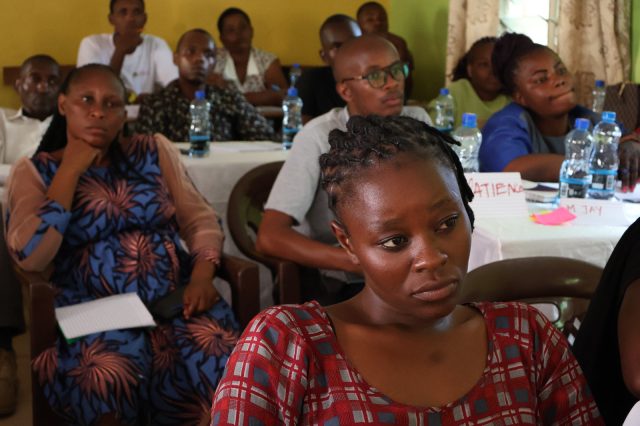In a demographic pattern that is uniform across Africa and other developing regions of the world, Kenya’s population constitutes over 70 per cent of young people, below the age of 35, according to the National Council for Population and Development (NCPD).
The youth population bulge has already exhibited lifestyle trends and behaviours that ignore traditional social norms.
Everything, from living life on social media platforms, fashion choices, faking fast personal success, low moral standards to dietary habits and more, have become the hallmarks that define the so-called Generation Z (GenZs) across the world.
Some habits, however popular among the GenZs, may end up harming their health in ways that become of great concern globally. One such habit by young people is the high rate of consumption of fast foods, which is seen as part of their trend of living on the fast lane.
Research by the National Institutes of Health (NIH) highlights that young adults’ high rate of consumption of what is referred to as junk food is made easier and more frequent by digital Apps that facilitate home and office delivery.
A study published in Health Psychology suggests that “adolescents and young adults may underestimate the long-term health impacts of poor dietary habits, leading to less concern about their nutrition Recognising the critical role of youth in food systems, the Global Alliance for Improved Nutrition emphasises that adolescents are at a vital stage of growth and development, and their nutritional needs are unique, but disorderly eating habits can have lasting effects on their health and well-being.
To address these challenges, governments, non-governmental organisations and policymakers must create environments that support healthy eating, ensure food security and promote youth engagement and employment in the food system.
Africa Harvest Biotech Foundation
One outstanding example in Kenya, the Africa Harvest Biotech Foundation International (Africa Harvest), has been spearheading a project called Drought-Tolerant Crops (“DTCs) 4 Youth Jobs Creation”.
The initiative aims to integrate youth into a researched food-growing system that generates healthy nutrition for arid rural areas and enables stakeholders to earn cash.
Over 120,000 young people in rural Kenya have been engaged through the commercialisation of DTCs technologies.

The project operates across 10 counties: Machakos, Makueni, Kitui, Tharaka Nithi, Taita Taveta, Elgeyo Marakwet, Siaya, Busia, Meru and Homabay. It focuses on eight value chains, including sorghum, finger millet, pearl millet, green grams, pigeon peas, groundnuts, poultry and fish, which have been enhanced to achieve high yields in dry regions.
Each of these is proven to be nutrient-dense, contributing to food security and improved nutritional outcomes in the country. They also offer opportunities for value-added products, such as sorghum cakes, sorghum pops, blended flours, breakfast cereal, and more bougie options like sprout ragi (finger millet sprouts).
Sorghum cakes and sorghum pops have emerged as popular alternatives, offering better nutritional value compared to wheat-based products. Sorghum flour, which is naturally gluten-free, is rich in protein, fiber, and essential nutrients like iron, magnesium, and B vitamins, making it a healthier option. Promoting these products to young people can help satisfy their cravings while providing significant nutritional benefits.
The Food and Agriculture Organization (FAO) recommends that governments and institutions promote healthier food choices among the youth through mass media, public awareness campaigns, and nutrition education in schools. Community-based interventions and point-of-sale information, including clear and consistent food labelling, can further support this effort.
Governments can also play a crucial role by offering subsidies or financial incentives for nutrient-rich foods like fruits, vegetables, and whole grains, making them more accessible. Investing in local agriculture to enhance the availability of diverse, nutritious foods is another sustainable approach, supporting farmers with resources, training and technology to grow and distribute healthy crops effectively.
By fostering a culture of awareness, making healthy foods more accessible and integrating youth into the food system through innovative programmes, eating habits of the youth can gradually be changed to support a healthier future.
The Writer is the Multimedia Officer, Africa Harvest Biotech Foundation International




















